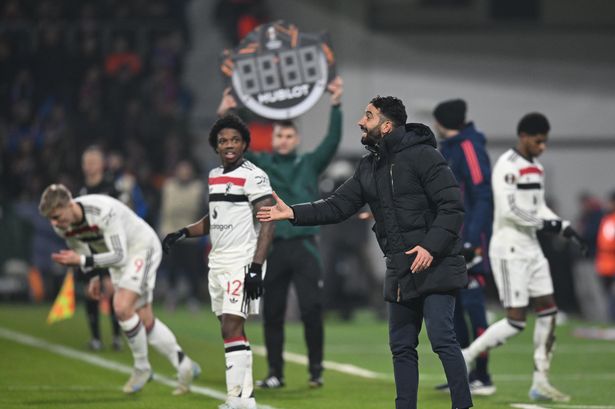The upcoming 2024/25 Europa League season will present significant challenges for Manchester United, especially when it comes to squad management. After struggling through an injury-plagued 2023/24 campaign, the club will need to ensure that they manage their players well, particularly given their involvement in multiple competitions—both the Premier League and the Europa League.

Key Challenges: The major hurdle for United will be managing the demanding schedule of playing Thursday night Europa League fixtures and then traveling for Premier League games on Sundays. These back-to-back games can lead to tight turnarounds, particularly if United has an away match in the Europa League, which historically has caused them difficulties.
Europa League Schedule: The 2024/25 Europa League group stages will be longer than usual, starting in late September and continuing through late January. Unlike previous seasons, where the group stages might finish before Christmas, UEFA has spread out the matches, with eight games that stretch well into 2025. This will create more opportunities for fatigue and could test United’s depth.
Here are the key dates for the Europa League matches:
- 25 September 2024: Manchester United vs. FC Twente (Home) at 8pm
- 3 October 2024: Porto vs. Manchester United (Away) at 8pm
- 24 October 2024: Fenerbahce vs. Manchester United (Away) at 8pm
- 7 November 2024: Manchester United vs. PAOK (Home) at 8pm
- 28 November 2024: Manchester United vs. Bodo/Glimt (Home) at 8pm
- 12 December 2024: Viktoria Plzen vs. Manchester United (Away) at 5.45pm
- 23 January 2025: Manchester United vs. Rangers (Home) at 8pm
- 30 January 2025: Steaua Bucharest vs. Manchester United (Away) at 8pm
Premier League Fixtures After Europa League Games: United’s Premier League fixtures after their Europa League matches have been confirmed, and these are crucial to understand in the context of fatigue and travel. Some of the key matches post-Europe are:
- After FC Twente (H): Manchester United vs. Tottenham (Home)
- After Porto (A): Aston Villa vs. Manchester United (Away)
- After Fenerbahce (A): West Ham vs. Manchester United (Away)
- After PAOK (H): Manchester United vs. Leicester (Home)
- After Bodo/Glimt (H): Manchester United vs. Everton (Home)
- After Viktoria Plzen (A): Manchester City vs. Manchester United (Away)
- After Rangers (H): Fulham vs. Manchester United (Away)
- After Steaua Bucharest (A): Manchester United vs. Crystal Palace (Home)
Toughest Challenges: The fixtures create several potential pitfalls:
- Aston Villa Away (After Porto): Villa’s home advantage could be tough, especially since they play in the Champions League midweek, while United will have just come from Porto. However, the fact that Villa will face Bayern Munich could give United a slight advantage if they tire.
- West Ham Away (After Fenerbahce): Traveling from Turkey to London to face West Ham is a tough ask. The travel fatigue combined with facing a physical side like West Ham might hinder United’s performance.
- Manchester City Away (After Viktoria Plzen): The derby against Manchester City could be particularly challenging if United faces a long-haul flight from the Czech Republic. Though City will also be traveling for a Champions League match against Juventus, United’s schedule could still leave them more fatigued.
- Steaua Bucharest Away (After Rangers): The end of January presents another potential challenge, as United will have to travel to Romania, then return home for a game against Crystal Palace.
Overall Analysis: The scheduling of United’s fixtures is far from ideal, with tough away games (Aston Villa, West Ham, and Manchester City) coming after Europa League travel. While the team might have some advantages—such as the potential for Villa to be worn out by a Bayern Munich game—the overall balance of their fixtures is less than favorable. The key to navigating this period will be Erik ten Hag’s ability to rotate his squad effectively, ensure player fitness, and possibly rely on his depth to manage the workload during these challenging stretches. This will be especially critical if United hopes to perform well in both the Europa League and Premier League simultaneously.